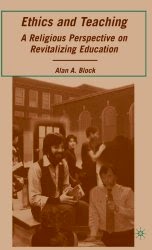29 July 2013
A story is told: During World War II, an elderly, ruffled
German wandered the bombed-out streets of Berlin frantically scanning the front
pages of every newspaper that was on sale at every kiosk that remained still
open. One curious proprietor watched the man with some interest and asked the
man what exactly he was looking for. “The death notices.” “Oh,” the proprietor
said with just a slight tone of disdain of disdain, “the death notices are
never printed on page one.” And the man looked up and said with some assertiveness,
“Oh, the death notice I’m looking for will be on Page one all right.”
It wasn’t on the front page
but . . . I looked at the obituary page
today in The New York Times and I am
saddened. J.J. Cale died this past Friday. His music has given to my life great
joy. And as the musicians such as J.J. Cale who helped create the world in
which I have lived die, I become older under greater protest. There is in my
voice that of my parents who despaired that their world that was better than
that of their parents (but was it really?) was being replaced by an inferior
way of life.
This next obituary did appear on
the first page of the newspapers last week: on July 18 Willie Louis died. In
1955, as Willie Reed, he testified against Roy Bryant and J.W. Milam at the
sham trial for the murder of fourteen-year-old Emmett Till to which the two
low-lifes had proudly confessed. In 1955 Reed was an eighteen year old boy whose
testimony against these men braved the threat of revenge that would be executed
on him for his account of witnessing the kidnapping of Till in the early
morning hours of 28 August, 1955 from his uncle’s house in the Jim Crow South
of Mississippi. Reed required protection during the trial’s duration and he was
spirited to Chicago after the trial where he lived out the rest of his life.
His wife says that he suffered nightmares through his life as a result of that
experience and that for eight years after the event Willie Reed didn’t even
mention its occurrence to her. It was decades before he would speak of the
trial or the murder.
The account of Reed’s death deserved to be front-page news. Here was
reported the life of a man whose bravery placed in vivid contrast the revolting
revelations of Anthony Weiner’s obscene texting—how stupid can one man be and
still think to run for public office;, or the news concerning the sexual
harassment accusations against Mayor Bob Filner of San Diego. And these latter
scandals almost pale when I place them next to the obscene pronouncements
emanating from the Republican party fools masquerading as leaders. Who is more
deserving of respect and the front page: a person barely out of childhood who
stood up against a history of contemptible degenerates whose only boast
consists of the claim that under the cover of night and hoods they terrified
helpless honest people and tortured and murdered a fourteen year old boy; or a cowardly
and rather stupid group of mostly men who desire to write their names in the
snow with their urine?
Oh, but you who philosophize,
disgrace and criticize all fears
Bury the rag deep in your face
For now’s the time for your tears!
20 July 2013
Wise Beyond Her Years
I guess I’ve been thinking about a certain phrase that I’ve
heard applied to Laura Marling, a folk-oriented singer from England of whose
work I am somewhat fond. In some of the press I’ve read she has been referred
to as expressing a wisdom beyond her years. I’ve been wondering what that phrase,
“wise beyond her years” might mean. On the surface there is something obvious
about the description: Marling displays a certain knowledge that the
reviewer/critic has achieved in his/her life even though Marling is years
younger. Marling knows things at her age that the wise critic has learned in
her/his longer life and greater experience. The critic says, “Marling knows
things that I didn’t know at her age but that I’ve since learned. Therefore,”
the critic concludes, “since I didn’t now then what I know now, and since
Marling knows now what I now know even though she is younger than I, she is
wise beyond her years.” In complimenting Marling, the critic applauds himself
as well. Aren’t we both clever, the critic remarks in a moment of
self-congratulation!
Dylan had reversed this equation
years ago. In “My Back Pages” he sang:
Good and bad, I define these terms
Quite clear, no doubt, somehow
Ah, but I was so much older then
I’m younger than that now
Quite clear, no doubt, somehow
Ah, but I was so much older then
I’m younger than that now
Dylan identifies here the knowledge of youth as that which
might more traditionally be identified as a conservativism of old age. It is a
type of knowledge that divides the world in Manichean fashion into absolute polar
opposites: good and bad, black and white, right and wrong. Since his youth, Dylan
declares, he has learned that such classifications lack validity, and the
inflexible critical positions he once assumed have now become less clear and
his value judgments less secure. The absolute categories to which he once adhered
have become too muddled. In another
context, in “Bob Dylan’s Dream,” a song written when he was yet in his early
twenties, he sings of that time in his youth when:
As easy it was to tell black from white
It was all that easy to tell wrong from right
And our choices were few and the thought never hit
That the one road we traveled would ever shatter and split
It was all that easy to tell wrong from right
And our choices were few and the thought never hit
That the one road we traveled would ever shatter and split
There is in the song an awareness expressed that the
romantic innocence of absolute certainty has no future, that its loss is sad,
even tragic, but that its loss is inevitable. “We thought we could sit forever
in fun/But our chances really were a million to one!” The possession of such
innocence and certainty is priceless--“Ten thousand dollars at the drop of a
hat, I’d give it all gladly if our lives could be like that—” but that innocence and
conviction can not be long held. Nothing
gold can stay.
Tolstoy addresses this position in War and Peace. In Volume III, Part
Three, Chapter 2 Tolstoy addresses the Battle of Borodino during Napoleon’s
invasion of Russia in 1812. The narrator (not necessarily Tolstoy, of course)
disputes the notion that battle plans are drawn up by commanders in the quiet
of their tents and then executed according to plan. “A commander in chief
always finds himself in the middle of a shifting series of events, and in such
a way that he is never able at any moment to ponder all the meaning of the
ongoing event. Imperceptibly, moment by moment, an event is carved into its
meaning, and at every moment of this consistent, ceaseless carving of the
event, a commander in chief finds himself in the center of a most complex play
of intrigues, cares, dependency, power, projects, advice, threats, deceptions,
finds himself constantly in the necessity of responding to the countless number
of questions put to him, which always contradict each other.” One of Tolstoy’s
points is that armchair generals and historians construct their analyses in the
absence of any of this complexity and therefore, inevitably err in their
oversimplified conclusions. There is too much complexity to conclude anything
with any great degree of sureness.
As in battle, so in life.
Interestingly, Tolstoy’s novel almost nothing turns out the way it had
originally been intended. In our crude modern times we address this phenomenon
as “Shit happens,” but in fact for Tolstoy (and Dylan, I suppose) this shit is
in fact, life and life only. Life is too complex to ascribe an effect to any
specific cause: in hindsight a pattern can be attributed to events, but that
pattern cannot begin to approximate the complexity and ambiguity of life.
Pierre recognizes this in Volume II, Part V, Chapter 1. Seeking answers he
searches in the books: “He read, he read everything that came to hand . . .”
But regardless of what he read he awoke in the morning, and “all the old
questions seemed as insoluble and frightening as ever.” In such a state Pierre
would grab for another book. And Pierre comes to understand that his
reading—all activity finally—is an attempt to avoid the realization that “Nothing
is trivial or important, it’s all the same.” The function of life is to behave
so as to avoid this realization.
And so I return to the idea of
Laura Marling’s wisdom beyond her years. Unless it consists of an awareness
that what she knows now absolutely is false; or that she already knows that all
true knowledge is of our ignorance, then her wisdom beyond her years (as the
critic describes) consists in the critic’s confirmation of her own wisdom.
However old s/he may be.











